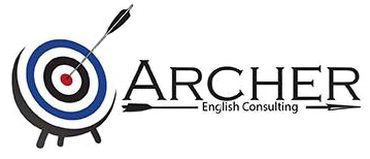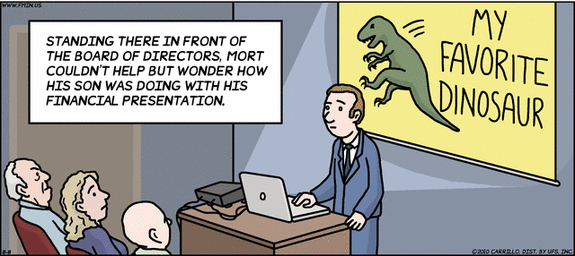 A Dilbert classic on presentations
A Dilbert classic on presentations Some teachers get into technology and become Computer Assisted Language Learning (CALL) specialists. Other take it a step further and learn how to program and become e-learning content developers. This niche is always developing and there is a lot of potential here for people just starting their careers.
Writing (especially technical writing) is another popular niche. Professors at my university who teach scientific writing to graduate students are always in demand and can parlay that experience into a qualification for technical editing. Teachers with these skills can advance in their field or shift to another one (teaching to editing).
Presentation and interview skills are what I have chosen to focus on. I have a BBA in Marketing and Management and my first experience with content courses was a business projects course that I taught eight years ago. I brought that course to KAIST and proposed that I teach it here as well. I taught in intersession camps and asked for presentation classes. I included presentation elements in many of my courses and taught undergraduate presentation courses for several years. In 2012, I cited demand from graduate students to join the undergraduate presentation courses and proposed a graduate-level presentation skills course. The experiences I had proposing the new business course, teaching successful camp and regular-semester courses in the subject, and citing student demand helped the administration make a positive decision to open the new graduate course.
Credibility is important in the ELT industry. Too many newspaper articles focus on "backpacker teachers" or foreign teachers who get in trouble with the law. We need to show our students and administrators that we are serious about our field and very good at what we do. One way to accomplish this is to highlight the practical experiences that we have in our specific niches. If you work in CALL, create a new website or e-learning program. If you are a writing instructor, join the editing team of a journal and point to that experience when a student challenges the grade they received on an essay. If you teach presentation skills, go speak at conferences and observe other sessions' speaker so you can give an up-to-date assessment on what speakers are doing well and doing poorly. The best educators teach their students using real-world experiences, not merely textbooks.


 RSS Feed
RSS Feed